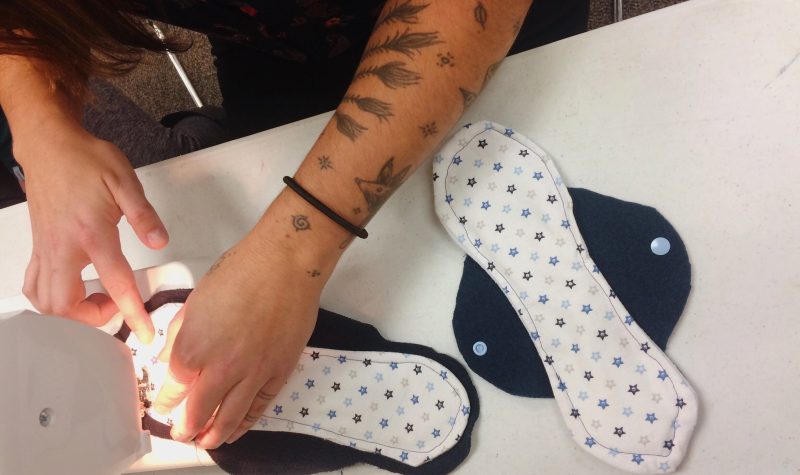The University of Northern British Columbia (UNBC) is on track to become the first university in Canada to offer free menstrual products on campus.
The Prince George Public Interest Research Group (PGPIRG), Northern British Columbia Graduate Students Society, the Northern Undergraduate Students Society and the Northern Women’s Centre joined forces this fall to advocate for access to period products. The organizations are currently in talks with UNBC’s Interim President Geoffrey Payne and are optimistic that the campaign will be successful.

Dara Campbell of PGPIRG says access to period products is a human rights issue. Photo courtesy of Dara Campbell.
Dara Campbell, executive director of PGPIRG, points to “period poverty” and the need to end stigma as motivations for this action. Campbell explains that period poverty is an issue everywhere, not just poorer countries, and is more complex than just the financial barriers. She describes it as a situation where “someone lacks the means, financially and also socially, of accessing the right products to manage their periods." Limited education around reproductive health and the experience of menstruation is another symptom of period poverty, and the outcomes can be serious. The Canadian Public Health Association states that lack of access, education, and the social conditions to manage their periods can result in dangerous physical outcomes such as toxic shock syndrome and lower reproductive tract infections.
As reported by the Globe and Mail, evidence suggests that menstruation prevents women from fully participating in social activities and is a barrier at school and in the workplace. Affecting approximately half the population for an average of six years of their lives, shame and embarrassment around menstruation can have far-reaching impacts on society.
Until the end of January, PGPIRG is giving away three Diva Cups via their Instagram page.
Listen to the interview with CFUR-FM:


